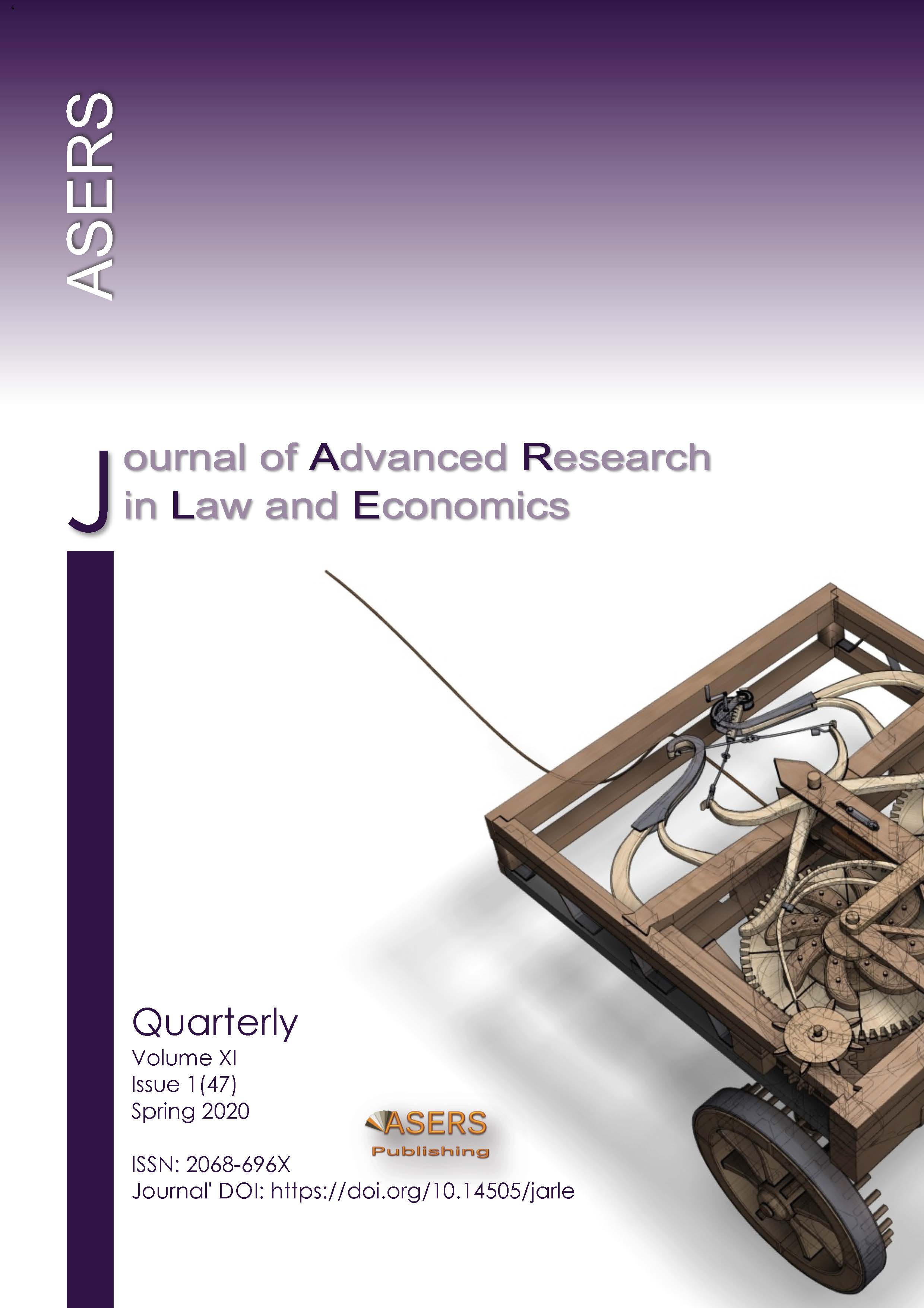Artificial Intelligence as a New Category of Civil Law
Artificial Intelligence as a New Category of Civil Law
Author(s): Elena Anatolyevna KIRILLOVA, Oleg Evgenyevich Blinkov, Natalija Ivanovna OGNEVA, Aleksey Sergeevich VRAZHNOV, Natal'ja Vladimirovna SERGEEVASubject(s): Law, Constitution, Jurisprudence, Civil Law, ICT Information and Communications Technologies
Published by: ASERS Publishing
Keywords: artificial intelligence technology; processes; legal responsibility; subject of right; object of right; robot; industrial revolution;
Summary/Abstract: This research gives consideration to the legal status of artificial intelligence technology. Artificial intelligence as a future technology is actively expanding its capabilities at the present stage of development of society. In this regard, the concept of ‘artificial intelligence’ and the application of the rule of right in resolving issues of legal responsibility for the operation of artificial intelligence technologies require definition. The main purpose of this study is to define the concept of ‘artificial intelligence’ and determine whether artificial intelligence technologies are the object or subject of right. The article provides the analysis of possible approaches to the disclosure of the concept of ‘artificial intelligence’ as a legal category and its relationship with the concepts of ‘robot’ and ‘cyberphysical system’. The issues of legal responsibility for the operation of artificial intelligence are revealed. For the purposes hereof, the methods of collecting and studying the singularities; generalizations; the methods of scientific abstraction; the methods of cognition of consistent patterns, as well as the method of objectivity, concreteness, pluralism and a whole range of other methods were used. The study has concluded that the artificial intelligence technology is an autonomous self-organizing computer-software or cyberphysical system with the ability and capability to think, learn, make decisions independently, perceive and model surrounding images and symbols, relationships, processes and implement its own decisions. The following general properties of artificial intelligence technologies have been defined: autonomy; the ability to perceive the conditions (situation), make and implement own decisions; the ability to adapt own behavior, to learn, to communicate with other artificial intelligence, to consider, accumulate and reproduce experience (including human experience). Within the present historical period, artificial intelligence technology should be considered as the object of right. The legal responsibility for the operation of artificial intelligence lies with the operator or another person who sets the parameters of its operation and controls its behavior. The creator (manufacturer) of artificial intelligence is also recognized as a responsible person. This conclusion makes it possible to enter the category of artificial intelligence in the legal field and determine the persons responsible for its poor-quality operation.
Journal: Journal of Advanced Research in Law and Economics (JARLE)
- Issue Year: XI/2020
- Issue No: 47
- Page Range: 91-98
- Page Count: 8
- Language: English
- Content File-PDF

